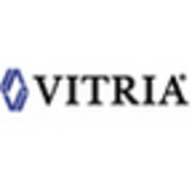

Appian and Vitria BusinessWare compete in the business process management space. Appian has the upper hand in pricing and support accessibility with robust features users find justify the cost, while Vitria BusinessWare excels with advanced analytics capabilities.
Features: Appian offers a user-friendly design environment, dynamic case management, and low-code development, streamlining process automation and enhancing collaboration. Vitria BusinessWare provides real-time analytics, business process integration, and event-driven architecture, focusing on operational intelligence.
Ease of Deployment and Customer Service: Appian is known for rapid deployment and intuitive customer support, allowing quick onboarding. Vitria BusinessWare presents a more intricate deployment process requiring additional resources but offers substantial post-deployment support for successful integration.
Pricing and ROI: Appian's setup cost is manageable, with clients experiencing a positive ROI due to ease of use and support services. Vitria BusinessWare might incur higher initial expenses due to advanced features, but its real-time data analytics offers a return that can justify the investment over the longer term.
| Product | Market Share (%) |
|---|---|
| Appian | 4.5% |
| Vitria BusinessWare | 0.3% |
| Other | 95.2% |

| Company Size | Count |
|---|---|
| Small Business | 20 |
| Midsize Enterprise | 9 |
| Large Enterprise | 42 |
Appian is a unified low-code platform and solution used by businesses to build enterprise applications and workflows. This product adapts to the needs of clients and the technologies they are already using to combine their data in a single workflow and maximize resources. The platform has four main components through which it transforms the work process for companies of various sizes. They are:
Appian is utilized across a diverse set of industries, including automotive and manufacturing, energy and utilities, education, financial services, telecom and media, transportation, retail, insurance, healthcare, and life sciences. The most frequent use cases of Appian are customer journey, governance, risk and compliance, operational efficiency, supply chain, distributed order management, and environmental, social, and governance (ESG) management.
Appian Features
Appian has various features that allow users to create solutions for their businesses. These features can be separated into a few groups according to function, including automation, low-code application development, and integrations and data. Some of the most frequently used features of Appian include:
Appian Benefits
The benefits of using Appian include:
Reviews from Real Users
A practice leader - digital process automation at a computer software company values Appian highly because the product is easy to develop, low-code, and has a good user interface.
Alan G., an advisory board member at Codecon VR, Appian offers a clear application life cycle, easy to learn documentation, and comes with a fundamentals course.
We monitor all Process Automation reviews to prevent fraudulent reviews and keep review quality high. We do not post reviews by company employees or direct competitors. We validate each review for authenticity via cross-reference with LinkedIn, and personal follow-up with the reviewer when necessary.